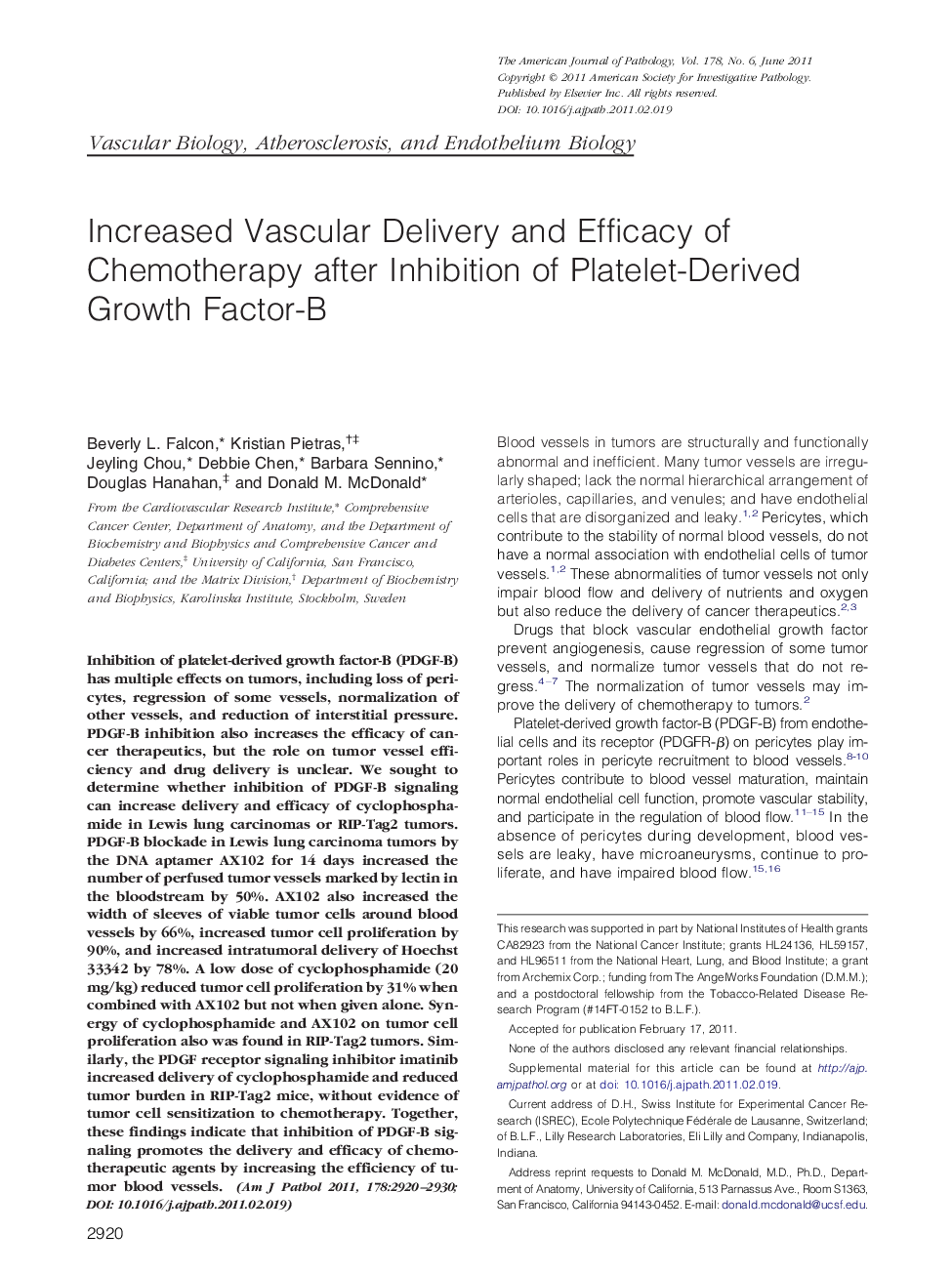| Article ID | Journal | Published Year | Pages | File Type |
|---|---|---|---|---|
| 5939557 | The American Journal of Pathology | 2011 | 11 Pages |
Abstract
Inhibition of platelet-derived growth factor-B (PDGF-B) has multiple effects on tumors, including loss of pericytes, regression of some vessels, normalization of other vessels, and reduction of interstitial pressure. PDGF-B inhibition also increases the efficacy of cancer therapeutics, but the role on tumor vessel efficiency and drug delivery is unclear. We sought to determine whether inhibition of PDGF-B signaling can increase delivery and efficacy of cyclophosphamide in Lewis lung carcinomas or RIP-Tag2 tumors. PDGF-B blockade in Lewis lung carcinoma tumors by the DNA aptamer AX102 for 14 days increased the number of perfused tumor vessels marked by lectin in the bloodstream by 50%. AX102 also increased the width of sleeves of viable tumor cells around blood vessels by 66%, increased tumor cell proliferation by 90%, and increased intratumoral delivery of Hoechst 33342 by 78%. A low dose of cyclophosphamide (20 mg/kg) reduced tumor cell proliferation by 31% when combined with AX102 but not when given alone. Synergy of cyclophosphamide and AX102 on tumor cell proliferation also was found in RIP-Tag2 tumors. Similarly, the PDGF receptor signaling inhibitor imatinib increased delivery of cyclophosphamide and reduced tumor burden in RIP-Tag2 mice, without evidence of tumor cell sensitization to chemotherapy. Together, these findings indicate that inhibition of PDGF-B signaling promotes the delivery and efficacy of chemotherapeutic agents by increasing the efficiency of tumor blood vessels.
Related Topics
Health Sciences
Medicine and Dentistry
Cardiology and Cardiovascular Medicine
Authors
Beverly L. Falcon, Kristian Pietras, Jeyling Chou, Debbie Chen, Barbara Sennino, Douglas Hanahan, Donald M. McDonald,
